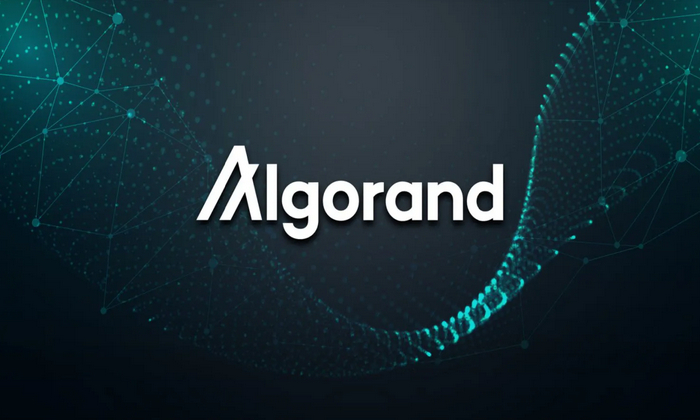-
 Bitcoin
Bitcoin $90,752.5471
4.27% -
 Ethereum
Ethereum $1,688.3053
6.41% -
 Tether USDt
Tether USDt $1.0006
0.08% -
 XRP
XRP $2.1453
3.23% -
 BNB
BNB $607.1447
1.71% -
 Solana
Solana $144.2444
7.14% -
 USDC
USDC $0.9997
-0.01% -
 Dogecoin
Dogecoin $0.1703
8.31% -
 TRON
TRON $0.2467
1.46% -
 Cardano
Cardano $0.6557
5.58% -
 Chainlink
Chainlink $13.7511
5.08% -
 Avalanche
Avalanche $21.5976
7.79% -
 UNUS SED LEO
UNUS SED LEO $8.9863
-1.47% -
 Stellar
Stellar $0.2566
1.55% -
 Sui
Sui $2.3975
10.43% -
 Shiba Inu
Shiba Inu $0.0...01300
5.63% -
 Toncoin
Toncoin $2.9806
2.64% -
 Hedera
Hedera $0.1760
4.31% -
 Bitcoin Cash
Bitcoin Cash $355.4488
3.40% -
 Litecoin
Litecoin $82.9174
5.86% -
 Hyperliquid
Hyperliquid $18.6132
6.14% -
 Polkadot
Polkadot $3.8737
1.18% -
 Dai
Dai $0.9998
0.01% -
 Bitget Token
Bitget Token $4.5191
1.97% -
 Ethena USDe
Ethena USDe $0.9996
0.04% -
 Pi
Pi $0.6386
1.01% -
 Monero
Monero $220.4697
3.17% -
 Pepe
Pepe $0.0...08356
7.90% -
 Uniswap
Uniswap $5.5839
5.52% -
 Aptos
Aptos $5.0800
1.52%
Popular science: What kind of currency is ALGO coin? How to get ALGO coins?
ALGO coin is the native cryptocurrency of the Algorand blockchain, enabling efficient transactions, staking rewards, and governance participation.
Oct 29, 2024 at 06:41 pm

Popular Science: What is ALGO Coin and How to Get It
1. What is ALGO Coin?
ALGO coin is the native cryptocurrency of the Algorand blockchain, a distributed ledger technology (DLT) platform designed for efficient and secure transactions. Algorand was founded in 2017 by Turing Award-winning cryptographer Silvio Micali.
ALGO coin serves several purposes within the Algorand ecosystem:
- Transaction fees: ALGO is used to pay for transaction fees on the Algorand network.
- Staking: Users can earn rewards by staking their ALGO coins, helping to secure the network.
- Governance: ALGO holders can participate in the governance of the Algorand network through the Algorand Foundation.
2. How to Get ALGO Coins
There are several ways to obtain ALGO coins:
- Exchanges: ALGO coins can be purchased on cryptocurrency exchanges such as Binance, OKX, Coinbase, and Kraken.
- Over-the-counter (OTC) trading: ALGO coins can be bought and sold directly with other individuals or entities outside of an exchange.
- Earning rewards: Users can earn ALGO coins through staking on the Algorand network or participating in community programs.
3. Staking Rewards for ALGO Coins
ALGO holders can earn staking rewards by participating in the Algorand consensus mechanism called the Pure Proof-of-Stake (PPoS) protocol. PPoS randomly selects a subset of ALGO holders to participate in the creation and verification of new blocks on the blockchain, earning rewards for their participation.
The annual percentage yield (APY) for staking ALGO coins varies and is influenced by factors such as the number of staked ALGO, the total supply, and the current market conditions. Users can stake their ALGO coins through various wallets or exchanges that support staking.
4. Uses and Benefits of ALGO Coin
ALGO coin offers several benefits and use cases within the Algorand ecosystem:
- Transactions: ALGO is used to make efficient and secure transactions on the Algorand network. Transactions typically take seconds and have low fees.
- Smart contracts: ALGO can be used to develop and execute smart contracts on the Algorand blockchain.
- Decentralized applications (dApps): ALGO is used to power dApps built on the Algorand platform.
- Investment: ALGO coins can be traded and held as an investment with the potential for price appreciation.
Conclusion
ALGO coins are an important part of the Algorand ecosystem, serving as the native currency for transactions, staking, and governance. With its efficient and secure transaction processing, staking rewards, and support for dApps, ALGO is a versatile and valuable cryptocurrency within the blockchain industry.
Disclaimer:info@kdj.com
The information provided is not trading advice. kdj.com does not assume any responsibility for any investments made based on the information provided in this article. Cryptocurrencies are highly volatile and it is highly recommended that you invest with caution after thorough research!
If you believe that the content used on this website infringes your copyright, please contact us immediately (info@kdj.com) and we will delete it promptly.
- Bitcoin (BTC) Price Surges to Two-Week High, Breaking Above $90,000
- 2025-04-23 01:00:12
- Popcat (POP) Price Soars Over 20% As Investors Rush To Buy The Meme Coin
- 2025-04-23 01:00:12
- Bitcoin (BTC) hits six-week highs as US trade war tensions embolden crypto bulls
- 2025-04-23 00:55:12
- An Encouraging Situation for Polygon
- 2025-04-23 00:55:12
- The European Central Bank (ECB) is the alarm about President Trump's policy
- 2025-04-23 00:50:12
- SUBBD Token Aims to Disrupt the $85000000000 Content Creation Market by Targeting OnlyFans
- 2025-04-23 00:50:12
Related knowledge

What is Ethereum’s Slashing mechanism and how to punish malicious behavior?
Feb 20,2025 at 03:08am
Key PointsOverview of slashingDifferent types of slashing in EthereumIncentives and consequences of slashingIdentifying and reporting slashed validatorsOngoing discussions and potential improvementsEthereum's Slashing Mechanism: Punishing Malicious BehaviorEthereum's slashing mechanism is an essential tool for ensuring network security and punishing mal...

What is the verifier node of Ethereum and how to become a verifier?
Feb 19,2025 at 06:00pm
The Verifier Node of Ethereum: A Comprehensive GuideKey Points:What is a Verifier Node?How to Become a Verifier NodeResponsibilities and Rewards of a Verifier NodeMinimum Requirements for Becoming a Verifier NodePotential Difficulties in Running a Verifier Node1. What is a Verifier Node?A Verifier Node is an independent entity on the Ethereum network th...

What is Ethereum’s staking, and how to participate and earn money?
Feb 19,2025 at 04:37pm
Key Points:Understanding Ethereum's Staking MechanismSteps to Participate in StakingBenefits and Rewards of StakingSecurity and Risk ConsiderationsTechnical Requirements and Hardware OptionsPotential Challenges and Troubleshooting TipsFAQs on Ethereum StakingWhat is Ethereum's Staking?Proof-of-Stake (PoS) is a consensus mechanism used in blockchain netw...

What is Ethereum’s DAO (Decentralized Autonomous Organization) and how does it work?
Feb 20,2025 at 03:12am
Key PointsDefinition and Structure of a DAOGovernance and Decision-Making in DAOsBenefits and Use Cases of DAOsChallenges and Limitations of DAOsWhat is Ethereum's DAO (Decentralized Autonomous Organization) and How Does It Work?Definition and Structure of a DAOA Decentralized Autonomous Organization (DAO) is an innovative governance and management fram...

What is Ethereum's multi-signature wallet and how to improve security?
Feb 20,2025 at 02:18pm
Key Points:Understanding the Concept of a Multi-Signature WalletBenefits and Drawbacks of Multisig WalletsRequirements for Setting Up a Multisig WalletStep-by-Step Guide to Generating a Multisig WalletImplementing Strategies for Enhanced Security1. Understanding the Concept of a Multi-Signature WalletA multi-signature (multisig) wallet in the Ethereum e...

What is Ethereum's oracle and how to provide data for smart contracts?
Feb 21,2025 at 01:30am
Key Points:Understanding the concept of oracles in EthereumExploring different types of oraclesDetailed guide on how to provide data for smart contractsAddressing potential challenges and considerationsWhat is Ethereum's Oracle?Oracles are crucial components in the Ethereum ecosystem, enabling smart contracts to access real-world data and off-chain even...

What is Ethereum’s Slashing mechanism and how to punish malicious behavior?
Feb 20,2025 at 03:08am
Key PointsOverview of slashingDifferent types of slashing in EthereumIncentives and consequences of slashingIdentifying and reporting slashed validatorsOngoing discussions and potential improvementsEthereum's Slashing Mechanism: Punishing Malicious BehaviorEthereum's slashing mechanism is an essential tool for ensuring network security and punishing mal...

What is the verifier node of Ethereum and how to become a verifier?
Feb 19,2025 at 06:00pm
The Verifier Node of Ethereum: A Comprehensive GuideKey Points:What is a Verifier Node?How to Become a Verifier NodeResponsibilities and Rewards of a Verifier NodeMinimum Requirements for Becoming a Verifier NodePotential Difficulties in Running a Verifier Node1. What is a Verifier Node?A Verifier Node is an independent entity on the Ethereum network th...

What is Ethereum’s staking, and how to participate and earn money?
Feb 19,2025 at 04:37pm
Key Points:Understanding Ethereum's Staking MechanismSteps to Participate in StakingBenefits and Rewards of StakingSecurity and Risk ConsiderationsTechnical Requirements and Hardware OptionsPotential Challenges and Troubleshooting TipsFAQs on Ethereum StakingWhat is Ethereum's Staking?Proof-of-Stake (PoS) is a consensus mechanism used in blockchain netw...

What is Ethereum’s DAO (Decentralized Autonomous Organization) and how does it work?
Feb 20,2025 at 03:12am
Key PointsDefinition and Structure of a DAOGovernance and Decision-Making in DAOsBenefits and Use Cases of DAOsChallenges and Limitations of DAOsWhat is Ethereum's DAO (Decentralized Autonomous Organization) and How Does It Work?Definition and Structure of a DAOA Decentralized Autonomous Organization (DAO) is an innovative governance and management fram...

What is Ethereum's multi-signature wallet and how to improve security?
Feb 20,2025 at 02:18pm
Key Points:Understanding the Concept of a Multi-Signature WalletBenefits and Drawbacks of Multisig WalletsRequirements for Setting Up a Multisig WalletStep-by-Step Guide to Generating a Multisig WalletImplementing Strategies for Enhanced Security1. Understanding the Concept of a Multi-Signature WalletA multi-signature (multisig) wallet in the Ethereum e...

What is Ethereum's oracle and how to provide data for smart contracts?
Feb 21,2025 at 01:30am
Key Points:Understanding the concept of oracles in EthereumExploring different types of oraclesDetailed guide on how to provide data for smart contractsAddressing potential challenges and considerationsWhat is Ethereum's Oracle?Oracles are crucial components in the Ethereum ecosystem, enabling smart contracts to access real-world data and off-chain even...
See all articles























































































